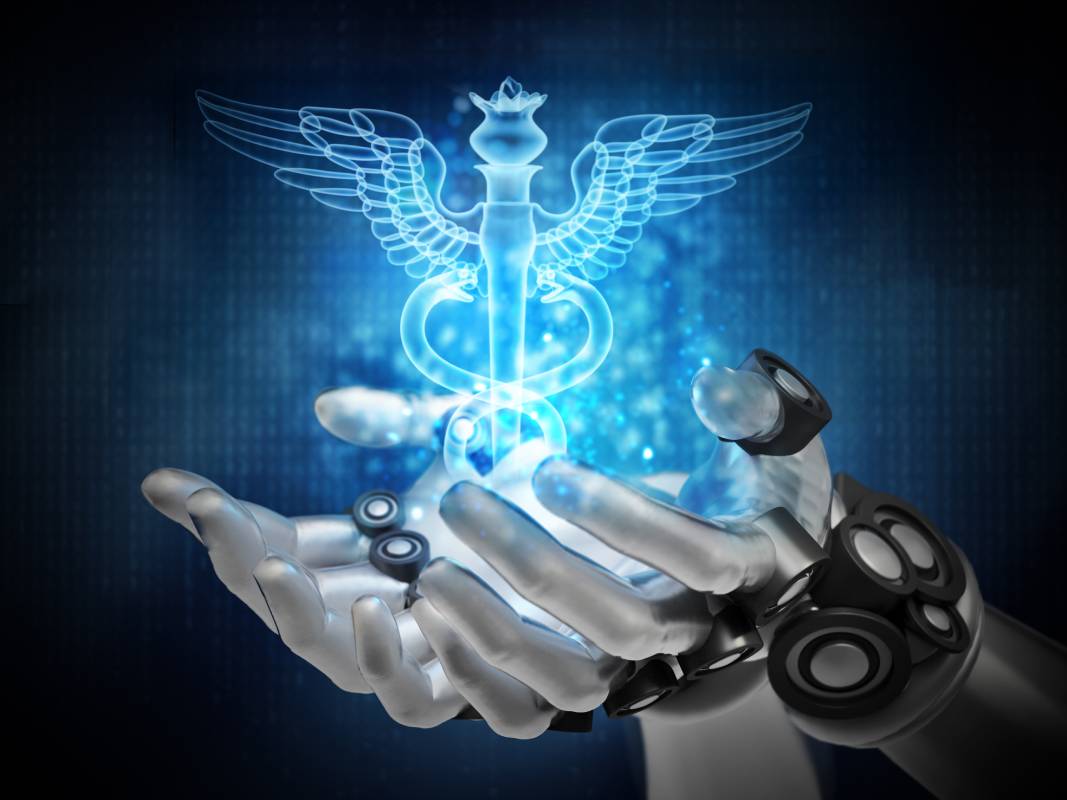Applications of AI in Medicine

Artificial Intelligence, or AI, is an umbrella term that encompasses technologies including deep learning, large language models, and natural language processing, that analyze large data sets in depth and learn from them, enabling the identification of subtle patterns1. As AI technologies evolve, the potential applications of AI in medicine become increasingly versatile.
There are many potential applications for AI in medicine, with implementation of AI-powered tools in healthcare operations estimated to cut costs by $150 billion by 20263. The most obvious application for AI is in streamlining and digitizing administrative tasks such as scheduling appointments, making reminder calls for pediatric immunizations and prenatal visits, and generating drug dosage algorithms and adverse effect warnings for patients on multiple drugs2. Studies show that physicians who use documentation support tools such as voice-to-text dictation or medical scribe services have more face time with their patients3. Using AI to lessen the documentation and administrative burden therefore may improve patient care and satisfaction3. Additionally, AI may improve the precision of medical therapies by tailoring treatment to each patient based on a variety of patient factors such as age, gender, geography, race, family history, immune profile, metabolic profile, microbiome, and environment vulnerability3. This can be accomplished using complex algorithms that can take large datasets with patient information and analyze them for prognostic outcomes, in conjunction with patient information provided through health apps that monitor metrics such as food intake, vital signs, physical activity etc3. With improved genetic testing, AI can also incorporate patient genetic information to optimize treatment plans3.
While the implications for AI use in clinical support tools are far-reaching and important, it is also a valuable technology for direct clinical work. Radiology and imaging diagnostics are one such area where AI can improve provider efficiency2. While much work remains before AI can independently infer a diagnosis within complex clinical contexts with proven safety and accuracy, it can be used as a data point in provider decision-making, especially in distinguishing normal scans2. This capability can be extremely helpful in places of high clinical volume, helping to reduce physician burnout2. From a quality and safety standpoint, AI-driven video analysis is surprisingly effective at performing root-cause analysis3. One video analysis of a laparoscopic procedure was 92.8% accurate, not only in elucidating the steps of the procedure, but also in establishing missing or incorrect steps3. Finally, AI has been used to improve surgical robotics. Johns Hopkins University has developed a surgical robot called STAR (smart tissue autonomous robot), which has been shown in animal tissue to be able to consistently outperform human surgeons in tasks such as creating connections in bowel, suturing, and tying surgical knots3. While a fully autonomous robot surgeon still belongs to science fiction, implementing AI in surgery can enhance patient safety and successful surgical outcomes3.
Overall, the field of AI is exploding in terms of new technologies, and learning how to work with AI has the potential to enhance human endeavors in many disciplines. Advancements in AI have vast implications in medicine specifically, including improving clinical efficiency, reducing provider burnout, and improving surgical outcomes through diverse applications.
References
- Alowais SA, Alghamdi SS, Alsuhebany N. et al. Revolutionizing healthcare: the role of artificial intelligence in clinical practice. BMC Med Educ 23, 689 (2023). doi:10.1186/s12909-023-04698-z.
- Amisha MP, Pathania M, Rathaur VK. Overview of artificial intelligence in medicine. J Family Med Prim Care. 2019 Jul;8(7):2328-2331. doi:10.4103/jfmpc.jfmpc_440_19. PMID: 31463251; PMCID: PMC6691444.
- Bohr A, Memarzadeh K. The rise of artificial intelligence in healthcare applications. Artificial Intelligence in Healthcare. 2020 Jun;25–60. doi:10.1016/B978-0-12-818438-7.00002-2. PMCID: PMC7325854.